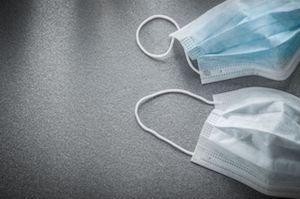Help Center
Online Resource Center for Information on Birth Injuries.
(updated March 19, 2020)

A lot remains unknown about Covid-19, the disease caused by the novel coronavirus. Researchers are still learning how it spreads, its effects on the human body, and how far it will spread. In the below article, we share what we know so far about how the coronavirus affects pregnancy.
To avoid catching the virus and to prevent the spread of disease, cover your cough and wash your hands frequently. Stay informed about what further measures are being advised in your area.
So far, it is unknown if pregnant women are more likely to catch the virus or to get more seriously ill with the disease. In general, pregnant women may be more likely to get some infections. Right now, pregnant women are thought to be equally likely or perhaps a bit more likely to have mild to moderate symptoms of the coronavirus compared with other women and men their age.
In general, children appear less likely to have severe symptoms than other age group. Older adults with underlying health conditions like diabetes are the most likely to be seriously affected or killed by the disease.
One study in February identified all infants (younger than one year) in China that were hospitalized and diagnosed with the coronavirus in a month-long period. Only nine infants were identified and none of them required intensive care or had any severe complications. However, this is just one study with a small sample size.
Children tend to have serious complications or die from the virus only when they have another serious health condition. A 10-month old infant in Wuhan, China died after testing positive for the novel coronavirus—the child had an existing intestinal blockage and died due to organ failure.
Though it seems that children are more likely than adults to be asymptomatic or have mild symptoms, it is still important to protect your newborn from the virus. The most recent research is showing us that, though the chances are low, children can still become seriously ill, particularly babies. You can take simple precautions, like washing your hands before touching, holding, or breastfeeding your baby.
A study published in February followed nine pregnant women who tested positive for Covid-19 and found that all of their babies tested negative. So far, the study concluded, there is no evidence to suggest that the disease is transmitted from mother to baby in the womb.
There have been a few instances in which pregnant women with the disease had problems with pregnancy or delivery, such as premature births. However, there is no way of linking these problems to the disease—it could be no more than a coincidence. There is no evidence yet of any more serious complications occurring.
We do not know; however limited studies have not found this to be the case. Of more concern right now is spreading the disease to your newborn the same way that it spreads normally: in “respiratory droplets” when a sick person sneezes or coughs.
If you have Covid-19 or there is a possibility that you could have it, take extra precautions with your newborn. Put on a face mask and wash your hands before touching the baby or breastfeeding. If possible, use a breast pump with freshly washed hands and have someone who is not sick feed your baby.
Obstetrics is a vital function of hospitals, and it is unlikely that you will not be able to receive the care you need to deliver your baby. Hospitals may cancel elective surgeries—childbirth, though, is not elective and will be accommodated.
Social distancing protocol—which requires people to avoid crowds and keep their distance from one another—will affect pregnancy, delivery, and the postpartum period.
Still attend your prenatal appointments as normal, unless you have been told to self-isolate due to possible or confirmed coronavirus. By contacting the doctor’s office or hospital ahead of time, you can find out what special policies are in place there. Always contact a healthcare facility before going if you have symptoms of the virus.
During their pregnancies, some women are using “telehealth” to do remote, virtual checkups. Blood pressure cuffs could start being mailed to pregnant women so they can watch for hypertension (high blood pressure) from home—hypertension is a major cause of maternal illness and mortality in the US.
Hospitals will have to make adjustments to accommodate for an influx of coronavirus patients. However, childbirth is a vital part of healthcare, so there will be procedures in place to ensure pregnant women get the treatment they need. For example, women with Covid-19 will likely deliver in an area separate from other mothers.
After their baby is born, parents should take extra precautions to prevent the spread of the virus. Moms and dads should follow social distancing protocol and wash their hands before interacting with their baby.
The current recommendation is that mothers with the coronavirus can still breastfeed but should wash their hands before touching their baby and wear a face mask. They should use a breast pump and have someone healthy feed the baby if possible.
Grandparents, family members, and friends may be unable to visit the new baby while social distancing procedures are in place. This will make having a newborn at home particularly stressful. Our page on how soothe a crying baby may be a useful resource to new parents during this time.